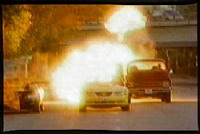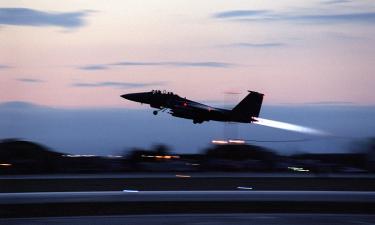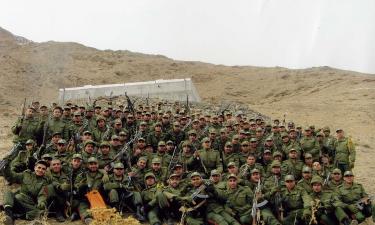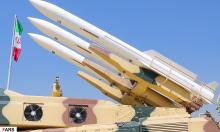Beirut organizes funeral for massive car bombing victim
Angry mourners blamed Syria and Hezbollah Thursday as the crowd laid to rest Lebanese legislator Walid Eido, the latest victim of a wave of assassinations of anti-Syrian figures.

Eido, a former judge, was killed Wednesday by a powerful bomb that ripped through his car as he drove from a seaside sports club. His son, two bodyguards and six passers-by were also killed, including two of Lebanon's national soccer players. Eleven others were wounded.
The blast was a further blow to the stability of this small Mediterranean nation that has been mired in a political power struggle between the government and the Hezbollah-led opposition. The Lebanese army has also been locked in a 26-day battle against al-Qaida-inspired militants in a Palestinian refugee camp in northern Lebanon.
The explosion in Beirut's Manara district came just three days after the U.S.-backed government, together with the United Nations, started assembling an international tribunal ordered by the U.N. Security Council to try suspects in the killing of former Prime Minister Rafik Hariri in Beirut two years ago - a move strongly opposed by Syria and its Lebanese allies - including Hezbollah.
Posters of Eido and his slain son, Khaled, 35, lined Tarik Jadideh, a Sunni neighborhood where support is overwhelming for Hariri's son, Saad, and the anti-Syrian majority bloc he leads in parliament to which Eido belonged.
The area was the scene of fierce Sunni-Shiite street clashes in February that threatened to push the country into a civil war. Wednesday's bombing further exacerbated those tensions.
Quranic verses rang out from a mosque as loudspeakers on a car blared: "Today is the funeral for a new martyr, killed at the hands of Bashar Assad," a reference to the Syrian president.
Syria has denied involvement in Eido's killing. A Syrian Foreign Ministry statement provided to The Associated Press said Syria deplored the "deception and campaign of lies" by some Lebanese politicians against Syria every time a crime is committed in Lebanon.
The funeral procession swelled to tens of thousands as the crowd escorted the bodies of Eido, his son and one of his bodyguards to a mosque next to the Shohada Cemetery.
Mourners' anger was also directed against the Shiite Hezbollah group.
"Terrorist, terrorist - Hezbollah is terrorist," a crowd of mostly Sunni Muslims shouted as they walked behind the coffins.
Hezbollah has called the assassination part of a "cycle of roaming terrorism targeting Lebanon and its stability" and urged national unity to confront it. Its legislators were among thoseofferingcondolences to Saad Hariri at his residence after the funeral Thursday.
Comments made by a TV broadcaster - who didn't know she was on the air - shortly after the bombing Wednesday have further heightened sectarian tensions.
The newscaster for ABN, a television station close to pro-Syrian Shiite parliament speaker Nabih Berri, was heard saying: "Why were they late in killing him?", referring to Eido, according to An Nahar newspaper, which didn't name the broadcaster.
She then said "they're driving us crazy," apparently referring to other anti-Syrian politicians. "Ahmed Fatfat is left. I'm counting them," she added, according to An Nahar and Al-Arabiya television, which broadcast a transcript of the conversation.
Fatfat is a Cabinet minister who has been one of the most outspoken critics of the opposition. He told Al-Arabiya Thursday he complained to Berri about the incident and planned to take the matter up with the judiciary.
Despite repeated provocations, Lebanon has so far been spared another large scale sectarian conflict - thanks to the efforts of rival political leaders, who urge restraint after every episode of violence.
But political reconciliation may be difficult because of growing Sunni-Shiite resentment.
"The blood of Sunnis is boiling," members of the funeral procession chanted.
Sunnis are nervous about the rising power of the Shiites, who now constitute the largest religious sect in the country, though not a majority, and want greater political authority.
Sunnis currently have relatively more political power - by tradition, only a Sunni can be prime minister. The lesser post of speaker of parliament is reserved for a Shiite.
But Sunni power has become an issue, with the Hezbollah-led opposition demanding veto power in the Cabinet.
At the funeral, Hariri said Lebanon will not kneel before the killers and promised they will be brought to justice. But none of the previous six assassinations of anti-Syrian figures have yet been solved.
Syria controlled Lebanon for 29 years until it was forced out after Hariri's assassination, and its Lebanese opponents believe it is seeking to regain domination by plunging the country into chaos.
It was not clear when the funerals of the other victims would be held as some of the bodies have not been identified. Authorities on Thursday identified a lawyer among the dead after running DNA tests.
Prime Minister Fuad Saniora has called for an emergency meeting of Arab foreign ministers - due to meet tomorrow in Cairo - and the international community to assist in the investigation of Eido's assassination.
Subscribe to Pravda.Ru Telegram channel, Facebook, RSS!





